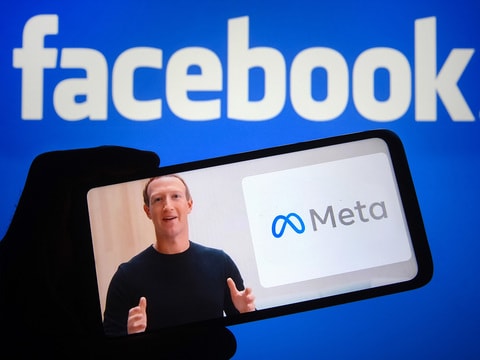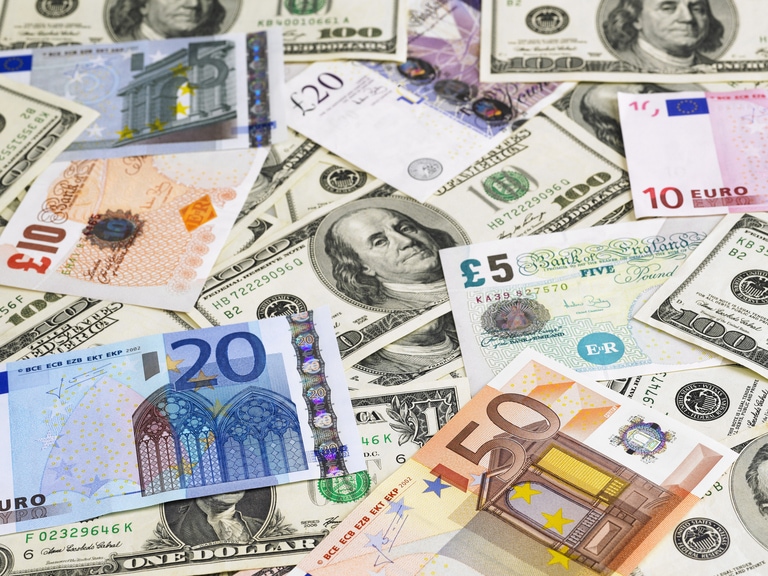It’s been a broadly weaker session for European markets as investors absorb the negative reaction to last night’s Q4 numbers from Facebook owner Meta Platforms, and the unexpectedly hawkish outcome of today’s Bank of England decision to raise rates by 0.25% to 0.5%. The decision of 4 MPC members to choose to ask for a bigger move suggests that there is increasing concern over the persistence of inflationary pressure.
Europe
This concern over inflation was also tangible in Frankfurt, when ECB President Lagarde said that inflation risks were very much tilted to the upside, and while she didn’t say so there is increasing concern that the ECB may well have to act on rates this year, no matter what they may say now, although we have heard post press conference from “sources” that a March “recalibration” on policy could take place, and that a rate hike might happen this year.
The FTSE100 has outperformed, even though it is still lower, largely due to outperformance in the oil and gas sector after Shell posted a decent set of Q4 numbers. The oil company boosting its buyback by $3bn to $8.5bn, while reporting Q4 profits well above expectations at $6.4bn, driven largely by the huge rises we’ve seen in oil and gas prices. This in turn has raised expectations of a similarly decent performance from BP next week.
Compass Group has been the biggest riser after reporting that Q1 revenues were back at 97% of pre covid levels, largely because of new business. The improvement came at the expense of business and industry where revenue was at 77% of 2019 levels, while healthcare and senior living rising to 115% and defence and offshore rising to 117% of 2019.
BT Group shares have dropped sharply after reporting Q3 results, which were slightly better than expected, and announcing that they were in talks with Discovery to create a sports joint venture. The venture would be a 50/50 split between BT Sport and Eurosport UK. This announcement appears to have drawn a line under the speculation that BT had agreed a deal with DAZN to sell the sports business for £580m.
This could be the main reason the shares have fallen back given that Q3 adjusted EBITDA came in at £1.96bn , pushing 9m EBITDA up to £5.71bn. Total revenues for the year rose to £15.67bn, 2% lower than a year ago.
BT said its 5G build is on track and that FTTP rollout is now at 6.5m properties, with 662k over the recent quarter.
US
US markets have opened sharply lower, led by the Nasdaq 100 after last night’s negative reaction to the latest numbers from Facebook owner Meta Platforms, with the shares falling over 25%.
A sharp rise in US 2-year yields towards 1.2% isn’t helping either, after the surprise decision by a minority of Bank of England policy makers to go for a much more aggressive move on raising rates. This appears to have created a ripple out effect on global bond markets, along with an ECB who refused to rule out a rise in rates this year.
On the data front weekly jobless claims improved again, coming down to 238k, from 261k, which suggests that the disruption caused by Omicron at the beginning of the year is starting to dissipate.
On the earnings numbers for Meta shares have plunged after investors reacted negatively to last night’s Q4 numbers. The numbers themselves weren’t that bad, with revenues coming in $33.67bn, which were better than expected, while profits came in slightly short at $3.67c.
The negative reaction has come from the daily and monthly active user numbers, which came in below expectations, raising concerns that social media was hitting peak user growth. Facebook also warned that Q1 revenues for Q1 would come in between $27bn to $29bn, a significant decline from the current quarter, and which was below market expectations of $30bn. The fallout from Apple privacy changes appears to be hitting its ability to generate revenues, as well as the slightly weaker economic outlook.
Because of today’s move lower in Meta, Snap, Pinterest, and Twitter are also sharply lower.
For most of this week US markets have been rising steadily buoyed by decent numbers from the big beats of Microsoft, Apple, and Alphabet, and yet all it takes is a miss from Meta for the move higher of the past few days to start to unravel.
Amazon shares are also lower ahead of the release of their numbers after the bell as concerns grow that the impact of higher costs may well impact negatively on its Q4 profitability.
FX
The pound initially popped higher after the Bank of England raised rates as expected by 0.25% to 0.5%, however the surprise came in the form 4 members of the MPC to raise rates by 50bps, and while that wasn’t the majority decision it still suggests that there is rising concern over the more persistent nature of the current price shock. It also lowers the bar for another rate rise at the March meeting, as traders ask where on earth the call for 50bps came from?
The ECB on the other hand left rates unchanged, but the denial when it came to the transitory nature of inflation was much less prevalent than it was last month from ECB President Christine Lagarde. She said that inflation were risks were tilted to the upside, and that there was increasing concern amongst ECB members about current inflation risks. When asked if she was prepared to repeat her comment from December last year, that a rate rise in 2022 was unlikely, she refused to do, shifting the calculus on whether we get a move on rates this year quite markedly. This shift has seen European yields move higher sending the German 2 year to a six year high. We’ve also seen big move in Italian yields which has seen the 10 year rise above 1.6% for the first time since May 2020. The change of emphasis has also seen the euro rebound sharply from a six year low against the pound, back towards last week’s highs. It has also rallied to a two-week high against the US dollar.
Commodities
Crude oil prices have continued to ebb and flow, and are slightly softer today, probably due to concerns that central bank tightening will constrict demand. On the flip side supply still remains tight even after the additional 400k barrels a day that will come on stream from next month, which suggests the downside should remain limited.
Today’s decision by the Bank of England to raise rates, as well as signal more could be on the way, along with the risk of a slightly hawkish policy shift from the ECB, has seen global yields spike, which in turn has sent gold prices sliding back towards the lows this week.






